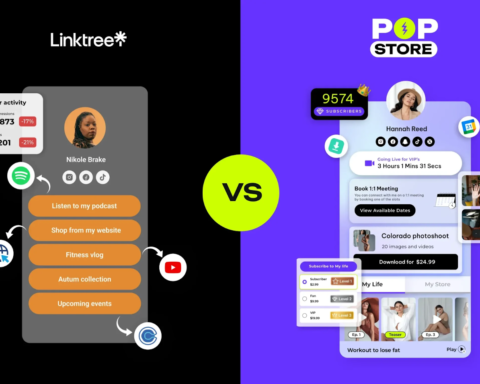Java is undoubtedly one of the most utilized and versatile programming languages globally when it comes to creating high-performance, secure, and scalable applications. In the case of Java developers, the choice of tools is critical since it enhances productivity, the efficiency of the code, and the work process. Even if you are a novice in Java development, first of all, you should familiarize yourself with the tools used in the development process. This blog post will list down the tools that every Java software developer should know and explain how these tools could improve different processes.
Top Java Development Tools Every Java Developer Must Know
Eclipse
Eclipse is one of the most popular IDEs that is specifically designed to support Java development company for all types of applications, from web to mobile and desktop. It involves features such as debugging, syntax highlighting, code completion, and even refactoring. Eclipse is easily extensible with many useful plugins that can be seamlessly added to the environment. Due to the vast plugin library, its functionality could be expanded to match the specific project requirements, which makes it the primary tool for Java development.
IntelliJ IDEA
Another IDE that Java programmers prefer is IntelliJ IDEA by JetBrains. It is known to be effective, smart, and innovative. It is known for its effectiveness, smartness, and creativity. Due to its version control feature and compatibility with different frameworks and languages, it is suitable for use in large-scale development. TThe IDE provides an easy-to-use graphical interface and features such as error checking and code auto-completion, which greatly enhance a developer’s productivity and the quality of the code being produced.
NetBeans
NetBeans is an open-source IDE software that offers all the essential functionalities to Java software developers. It is used throughout the entire development process, from writing code to testing and deployment. Some of the features include ease in creating and managing project structures, simple editing of code, as well as user-friendly interface; thus making NetBeans to enhance efficiency in developing both native, web, and mobile interfaces. It also supports multiple languages and platforms, which is immediately beneficial to developers.
Apache Maven
Apache Maven is a leading project management and comprehension tool based on the concept of the Project Object Model (POM), which is designed to manage the project build, reporting, and documentation. For Java developers, Maven offers convenience by outlining how software is built and what it depends on. It is commonly used for managing and building Java-based projects as it encourages a more structured approach with a predefined build process. Maven’s features of dependency management and automated builds also improve the efficiency in completing projects and maintaining project consistency.
Gradle
Gradle is an open-source build automation tool which is versatile enough to build any kind of software. While using Java for different purposes, Java programmers regard Gradle as highly useful due to its flexibility and multi-project build features. It promotes incremental builds by identifying the latest parts of the build tree, thereby reducing unnecessary recompilation. Gradle supports multiple languages and has a rich plugin system, which allows it to be used in large projects easily.
JUnit
JUnit is an open-source testing framework specifically designed for the Java programming language. It proves to be an essential asset in the development life cycle for hire Java developers seeking to incorporate effective testing practices. JUnit encourages the “test first” approach that is about writing tests before the actual function, which makes developers write more secure and bug-free code. Integration with build tools such as Maven and Gradle and IDEs including Eclipse and IntelliJ IDEA makes the testing process easier. JUnit has a combination of many powerful assertions and testing annotations that help in achieving maximum test coverage and testability.
Git
Git is the most important tool for versioning and every Java developer should understand and learn how to use it properly. Git lets you to monitor the changes, go back to the previous states, and use branches for your projects. It helps a team of developers work together and is used in contemporary software development methodologies. Git’s distributed version control ensures that the codebase of each developer contains the entire project, making it highly reliable and flexible. GitHub, GitLab, and Bitbucket are powerful platforms that help manage Git repositories and interact with CI/CD systems.
Jenkins
Jenkins is an open-source automation server that offers plugins to build, deploy and automate any project. Java programmers value Jenkins for the continuous integration and continuous delivery features that help in integrating changes in the project and identifying errors at an early stage of development. Jenkins has a rich set of plugins that can be integrated with other tools and technologies to improve automation. Its clear interface and active community make it a core tool in contemporary DevOps approaches.
Docker
In a world where having identical development environments is critical for testing and production, Docker offers essential container technology. Java software developers are able to compile all of their applications, as well as their dependencies into one standard packaging format for software development that works in any environment. Docker’s containerization reduces environmental variations, which makes it more dependable and consistent at various development and deployment phases.
VisualVM
VisualVM is a comprehensive tool for troubleshooting Java applications. It offers a closer look at Java applications when they are live on a Java Virtual Machine (JVM). It is used by Java developers for profiling, monitoring, and heap dump analysis to find out the slow methods, memory leaks and much more. The interface of VisualVM is very user-friendly and it contains all necessary tools that are required to solve the problems.
Spring Tools 4 (for Spring Framework)
For developers working with Spring framework, Spring Tools 4 is a must-have suite of tools, including IDE. It has integrated support for all the applications developed using the Spring framework including Spring Boot, Spring Integration and many more. Java developers use it for its superior code completion, live information from Spring Boot apps, and quick solutions to problems. Spring Tools 4 makes the development of Spring-based applications more effective through compatibility and rich functionality.
SonarQube
SonarQube is an open-source web-based tool for continuous assessment of code quality. It conducts automatic reviews through static analysis of code to identify bugs, code smell, and security flaws. Java developers utilize SonarQube in an effort to enforce code quality and enhance the maintainability of a project. Due to its compatibility with the CI/CD pipeline and ability to support multiple languages, this tool is valuable for code quality assurance.
Endnote
With the Java environment undergoing constant changes, it is important for Java software developers to learn more about the latest tools and technologies. Java developers can benefit a lot from the right tools that can improve their effectiveness and productivity on the job. IDEs such as IntelliJ IDEA and Eclipse, and build tools such as Maven and Gradle mentioned in this article can enhance the development process greatly.
Keep an eye for more news & updates on EssentialTribune.Com!








